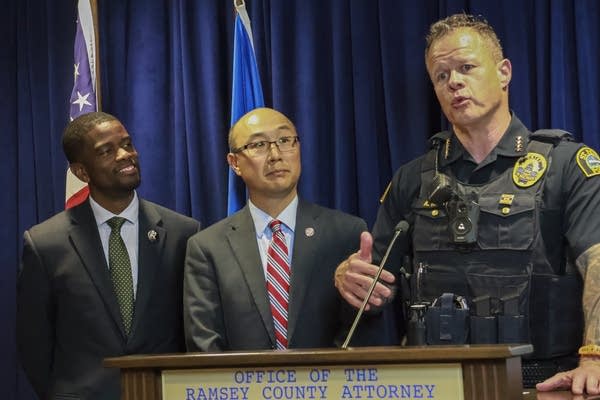Choi: Ending low-level traffic stops hasn't led to more crime in Ramsey Co.

St. Paul Police Chief Axel Henry, right, speaks at a news conference in St. Paul alongside Mayor Melvin Carter, left, and Ramsey County Attorney John Choi on Wednesday.
Matt Sepic | MPR News
Go Deeper.
Create an account or log in to save stories.
Like this?
Thanks for liking this story! We have added it to a list of your favorite stories.


